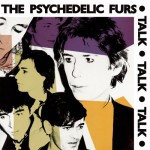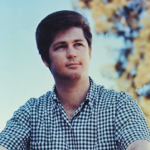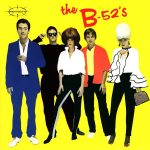Music has a long history of producing shock artists who are really bellwethers of social change, writes Simon Frith
Support independent, non-corporate media.
Donate here!

Not long after the orchestration of outrage that followed Bob Vylan’s Glastonbury appearance I got a message from my local Arts Centre: Due to unforeseen circumstances, I could be wrong, I could be right, John Lydon’s event on Friday 3 October, has been postponed until 2026 and will now take place on Wednesday 4 March. Current ticket holders will be contacted by Box Office. If you have any questions, please email our Box Office team.
I could be wrong, I reflected, but I wouldn’t be surprised if, as time passes, Bob Vylan become a national treasure too, making their living on the nostalgia/talk circuit. I also wondered, given AI’s increasing role in news reporting, how many people around the world had read that Bob Dylan had denounced the Israeli Defence Force.
One thing I know for sure is that the history of rock is a history of music makers starting out by causing offence and ending up quite inoffensive. This was the narrative trope from the start, well captured by Baz Luhrmann’s Elvis, a case study of the mediation and remediation of social offensiveness. Presley’s music and public appearances obviously affronted racial and sexual norms. In due course, however, these norms and Presley’s musical persona adapted to each other. This is the subject of Luhrmann’s film.
It was a story to be repeated over the following decades: The Rolling Stones and the affront to decency; David Bowie and the affront to manliness; Madonna and the affront to sexual modesty. The biggest rock stars in the 1960s and 1970s were bellwethers of social change. They became inoffensive not because their music changed but because social conventions did. As a rock critic, though, I had learnt that offensiveness was always the measure of musical value; inoffensive music was by its nature worthless. Live Aid, as its 40th anniversary celebration showed clearly enough, symbolised among other things the end of rock as an interesting way of making music.
By then the sounds that mattered were offensive in a different way, as a public nuisance or a threat to social order, an offence in a legal sense. Local licensing boards, politicians and the police now led the affronted. This was the era of gig violence, illegal warehouse parties and outdoor raves, the overlap of drug dealing and dancing, the defiance of broadcast regulation and local licensing laws. Good music was difficult listening in a new way: edgy, urgent, brittle, crude, confused.
Looking back on the evolution of my musical tastes I realise that my love of offensive music had two strands. One was generational. The changing styles of post war youth culture – the sight as well as the sound of young people (from teds through hippies and skinheads to punks, goths, etc.) seemed continually to offend older people. As a teenager I was ordered out of Betty’s Tea Rooms in York by a waitress affronted by my long hair. But from the 1960s on there was also an element of popular musical ideology that drew – via art schools – on an aesthetic determination to shock, to confront audiences and make them uncomfortable. See, for example, Gavin Butt’s No Machos or Pop Stars, an excellent oral history of the Leeds arts school/popular music scene in 1970s and 1980s.
What is involved in giving and taking offence is now a topic for academic moral philosophy. I’ve been reading Andrew Sneddon’s 2021 Offence and Offensiveness. A Philosophical Account and Emily McTernan’s 2023 On Taking Offence. Their concern is, in different ways, what it means to feel offended, what justifies such a feeling and under what conditions it might express a moral judgement. Sneddon suggests that being offended is “a moralised bad feeling”; a response to a clash of “symbolic values”. McTernan suggests that taking offence is a morally appropriate response to disrespect for our social standing. In whatever way we interpret feelings of affront at an individual level, it seems clear that giving and taking offence is in general an everyday measure of social change.
In my attempts over the years to cull my record collection I have only twice removed records because I found them offensive. One was D.o.A. The Third and Final Report of Throbbing Gristle. The other was Patrick Sky’s Songs That Made America Famous. Both records were meant to be offensive and originally made me laugh. Throbbing Gristle’s packaging, though, included a sexualised pin-up of a child which I found increasingly disturbing: exploitation in the service of shocking art? Symbolic values were definitely involved here. Patrick Skye’s mockery of everything increasingly sounded like contempt – disrespect – for everyone else.
That said, the most disrespectful behaviour in British music history, the activity that caused the most offence, was audiences spitting at bands at punk gigs. How this started, why it finished, I have no idea.









